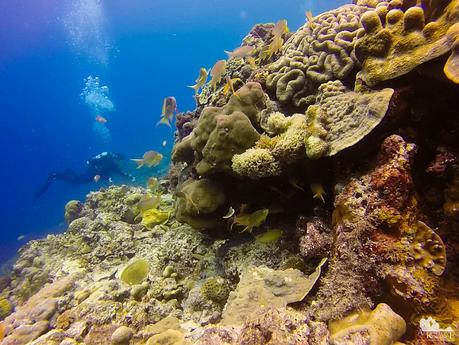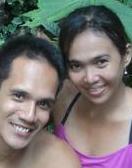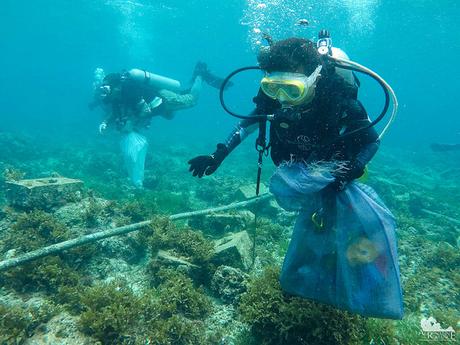
Are you doing your part in taking care of our seas and oceans? If you are to live in this world, then such responsibility should be inherent in you. Your acts of love for the blue world doesn’t have to be monumental. Not using single-use plastics and not throwing garbage carelessly into the ocean are first simple yet significant acts of preserving Mother Nature.
A few weekends ago, we acted on such love of Mother Nature. Through the invitation of Project BLUE, Sweetie and I joined the Scubasurero 2018.
We arrived at the Bluewater Maribago Resort, one of our favorite places to relax and have fun. Surrounding the resort are really cool dive sites that harbor a lot of marine gems. Definitely worthy of preservation and protection.
While waiting for the event to start, we met both old and new friends, including Princess, a lively Filipina diver who came all the way from Seoul, South Korea just to attend Scubasurero. Now, that’s dedication!
Familiar faces from Project BLUE, Camp Red, Scuba Star Dive Services, Dive and Trek, and the Lapu Lapu Government all congregated for a concentrated effort in saving the environment.
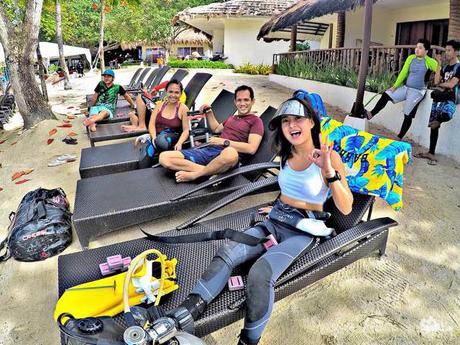
(Photo credit: Princhess Shang Tori)
As mid-morning approached, the Scubasurero event started. Welcoming words from the Maribago Bluewater Management team, inspiring words from the LGU, and dive briefings from the Philippine Coast Guard all buoyed us to undertake this noble activity.
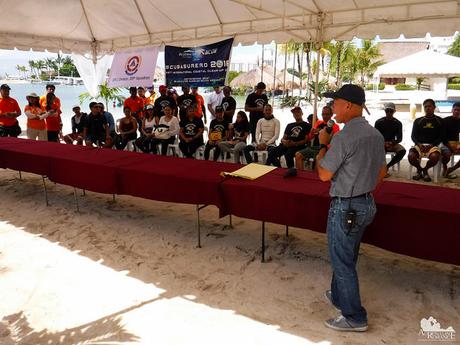
Once the briefing was done, everyone went back to their stations to suit up and prepare for the cleanup.
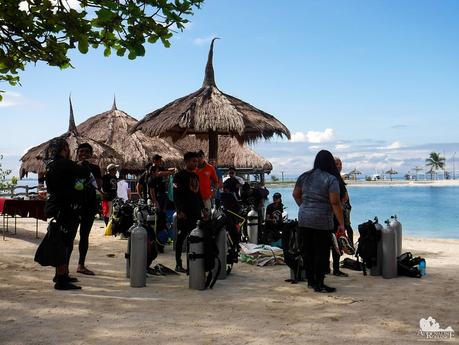
Like an army on the prowl, a team of environmentally concerned divers scoured the shallow seabed for plastic waste, cans, metals, and other debris. We are an army yes—an army for Mother Earth.
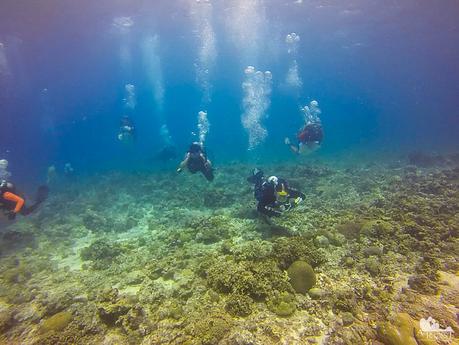
Many divers brought old sacks of rice. We use this to keep the trash we collected from the seabed. Unlike snorkeling or free-diving, we cannot sink or float to the surface as we please so we could haul our trash to a waiting boat. We need to stay underwater at a certain level for a pre-determined time for safety purposes.
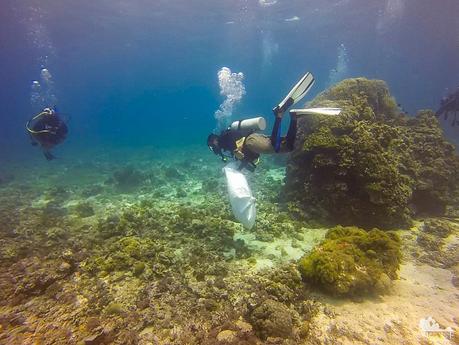
Not all human-made stuff is bad for the environment. Yes, it’s true that they sometimes look ugly and out of place. However, Nature always finds a way and adapts to the situation sooner or later. These blocks and water pipe have become artificial reefs that are teeming with seaweeds, algae, corals, and barnacles that provide fish a home.
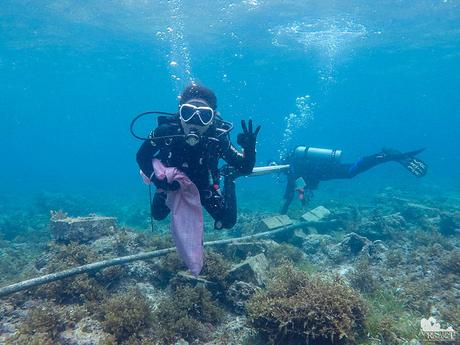
(Photo credit: Scuba Boo)
Just like any individual or group, divers may have their own peculiarities in terms of character, attitude, preferences, morals, and more. Sometimes, these differences cause rifts, disagreements, and even bad blood.
But when it comes to preserving the environment, everyone in the scuba diving community unites. No matter what our differences are, we are one in helping Mother Nature.
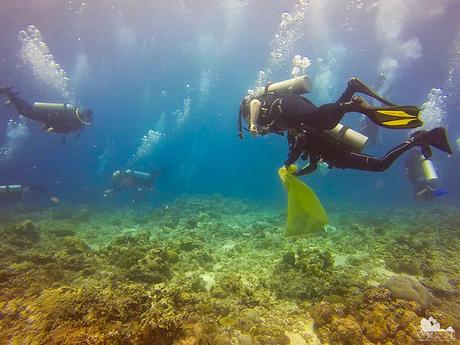
A few anemone fish peeked out of their protective home to inspect our work. A healthy reef signifies a consortium of healthy marine life, interacting and engaging with each other. This bio-synthesis benefits every organism in the reef—prey, predators, parasites, and everything in between. Ultimately, this benefit spills to human society.
Take care of our reefs, and the ocean will take care of us.
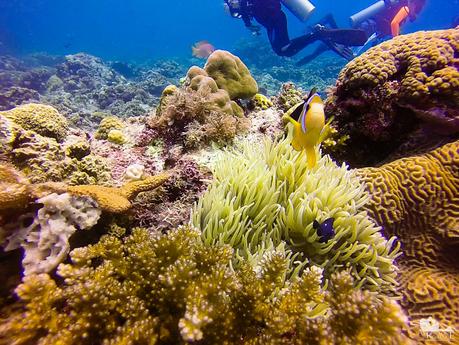
Two pipefish, their colors perfectly blending with the sand, cautiously kept their distance as divers searched the nooks and crannies of the reef with garbage. Many of the things that humans use, from common consumer goods to rare medicines, come from the reef. And scientists believe that we have barely begun to scratch the surface.
Like these two camouflaged pipefish, healthy reefs harbor a lot of secrets that can save and improve human society.
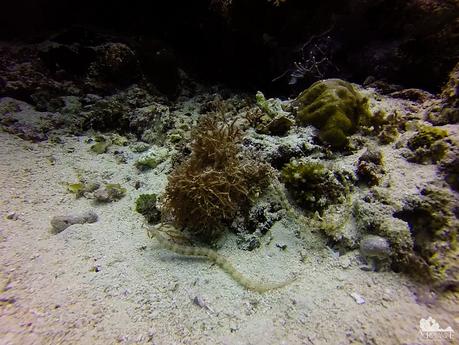
It is important to understand that everything in this world is interconnected. Each fish, each coral head, each strand of seagrass has a function that is essential to the survival of the ecosystem.
We should not see ourselves as beyond the marine ecosystem. In fact, we should change our outlook about ourselves, and we should see humans as part of the ecosystem.
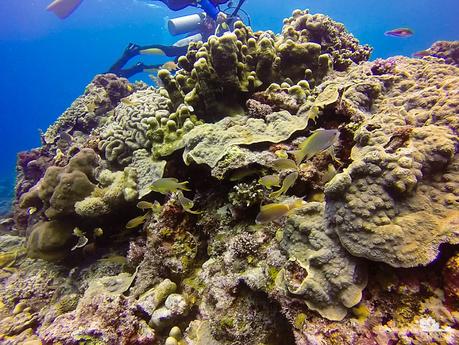
Cleaning is fun as well! Smile bubbles galore, Sir Boo and Princess!
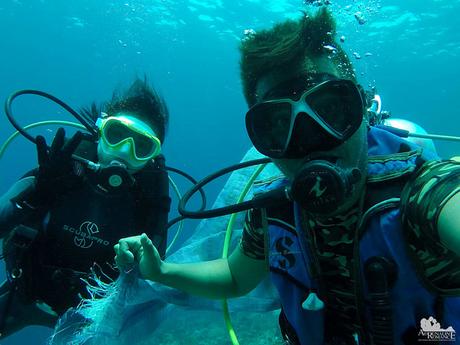
(Photo credit: Scuba Boo)
Non-scuba divers swam on the surface of the water, collecting floating garbage.
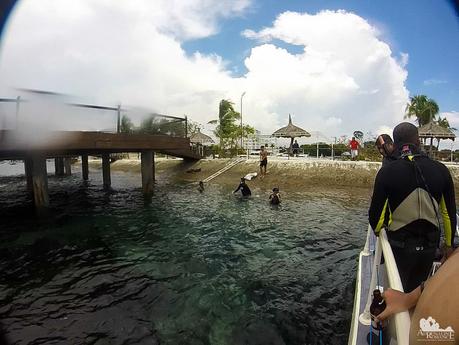
With our tanks running low, it was time to go back and weigh the garbage that the team collected. It was a bittersweet moment.
On a positive note, we collected a whole lot of garbage as you can probably see in the photo below. Sacks upon sacks of plastics, bottles, soda cans, utensils, and more that were unceremoniously dumped into the ocean are now recovered. It means that the reef, at least in the places where we were doing the cleanup, was now free from debris.
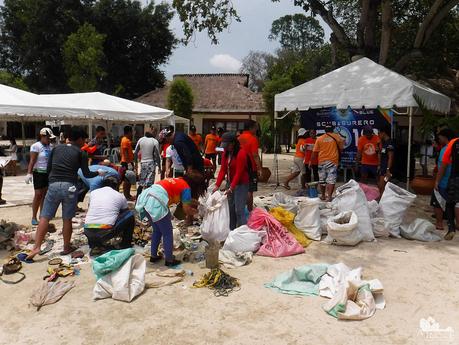
On the other hand, the presence of so many sacks of trash was disheartening. It meant that people still continue to treat the ocean as if it was a dump.
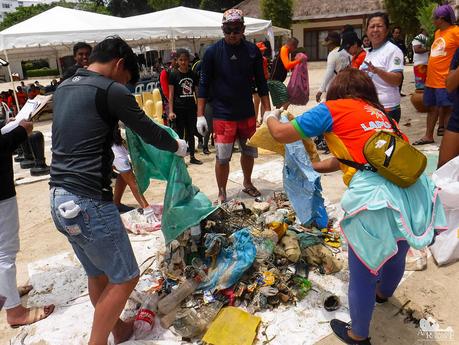
Although they did not go scuba diving, the Camp Red team collected pieces of rubbish that were floating in the water. They hauled some of the biggest garbage catch!
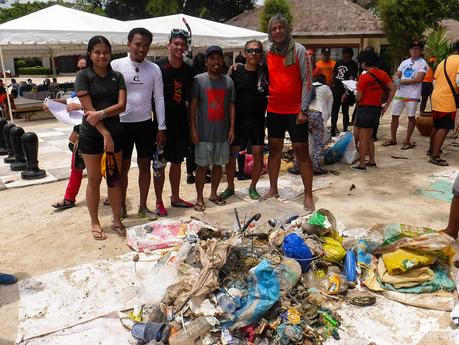
With all the garbage weighed and collected, it was time for a well-deserved reward. Thank you Maribago Bluewater for the wonderful boodle lunch. And thank you Project BLUE for allowing us to join this endeavor.
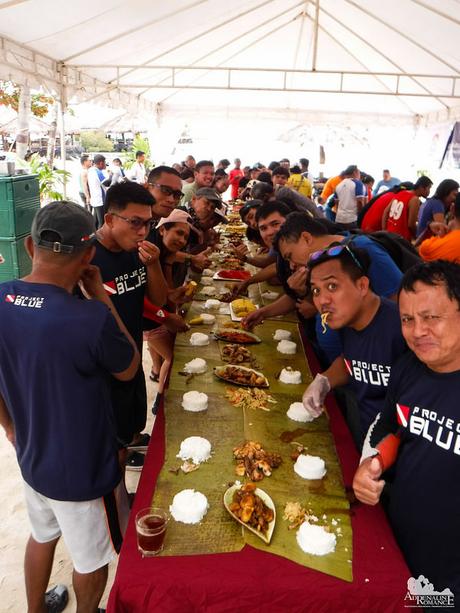
Best of all, at the end of the cleanup, Sweetie and I became honorary members of Project BLUE! What a great honor! It’s with pride and privilege to wear these royal blue shirts that speak volumes of our advocacy.
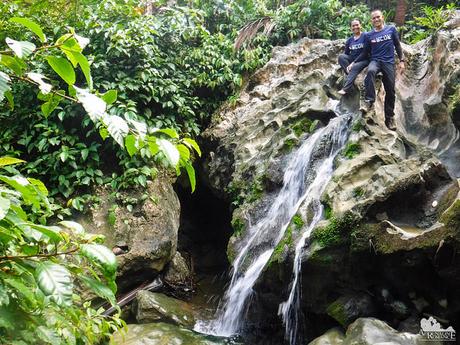
Take care of our ocean. Remember that the ocean is no less than the planet’s lifeblood. If we destroy the ocean, then we destroy ourselves.
